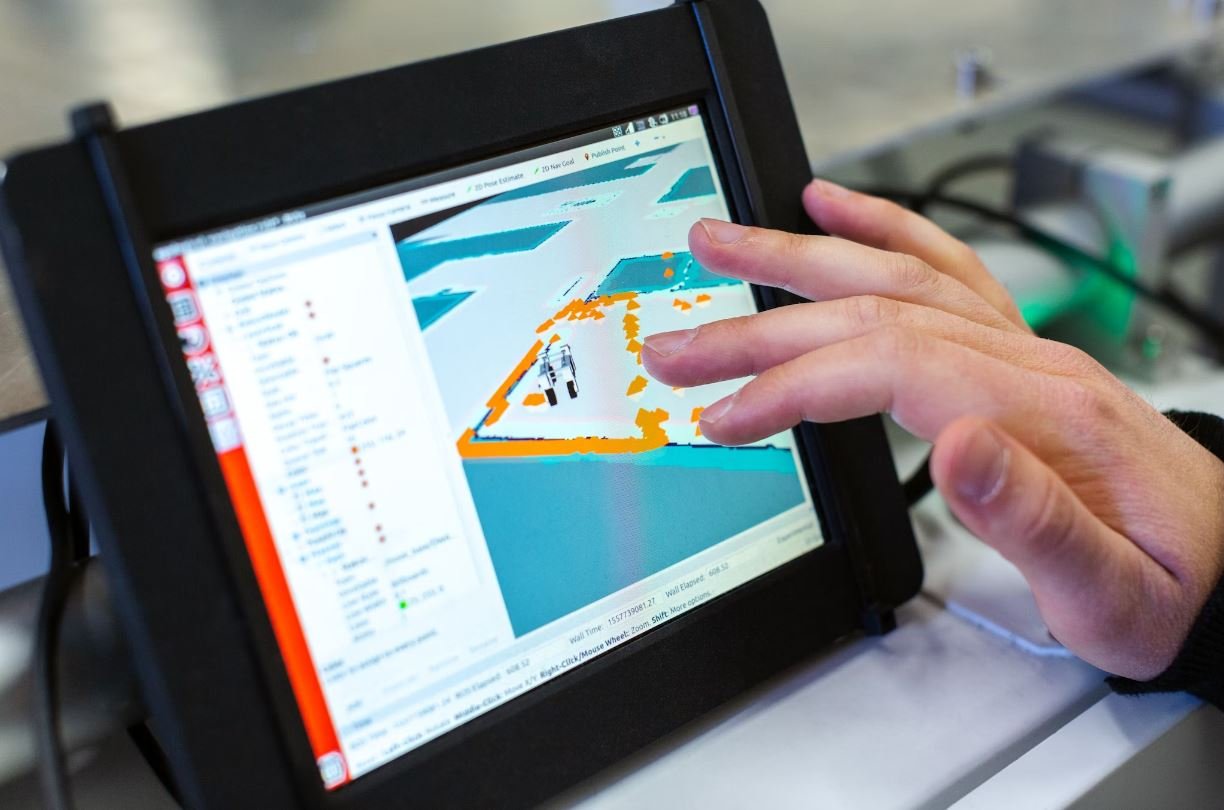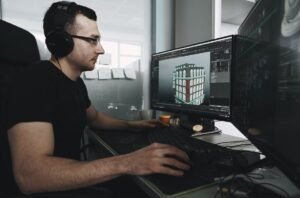AI Lyrics Making
Artificial Intelligence (AI) has revolutionized various industries, and now it is making its mark in the music industry. With the help of AI, lyricists and songwriters can generate lyrics that are catchy, creative, and often indistinguishable from those written by human beings. This article explores how AI is transforming the process of lyric-making, its benefits, and the potential impact it may have on the music industry.
Key Takeaways:
- AI technology is now capable of generating lyrics that are comparable to those written by humans.
- AI lyrics-making offers efficiency and productivity, accelerating the creative process.
- Human input, emotion, and creativity are still crucial in ensuring the final product is meaningful and relatable.
The Power of AI Lyrics Generation
AI-powered lyrics generators use sophisticated algorithms and machine learning techniques to analyze vast amounts of existing song lyrics, understanding patterns, rhymes, and semantic relationships. These algorithms can then produce original lyrics that follow similar patterns and stylistic elements, making them sound natural and coherent.
However, human artists are still essential in providing emotional depth and personal insights, injecting their emotions and experiences into the lyrics.
Benefits of AI in Lyric Making
The implementation of AI in the lyric-making process offers numerous advantages to both artists and songwriters:
- Speed and Efficiency: AI algorithms can generate lyrics quickly, reducing the time artists spend on brainstorming and writer’s block.
- Creative Inspiration: AI-generated lyrics can serve as a starting point for artists, inspiring new ideas and directions for their songs.
- Enhanced Collaboration: AI tools foster collaboration by allowing multiple artists to work simultaneously on different aspects of a song’s lyrics.
Impact on the Music Industry
AI lyrics-making has the potential to revolutionize the music industry in several ways:
- Diverse Songwriting: AI can introduce new perspectives and styles to the music industry by analyzing a wide range of genres, allowing for experimental and unique creations.
- Increased Productivity: With AI reducing the time spent on lyric creation, artists can produce a higher volume of songs, leading to increased revenue and creative output.
- Personalized Listening Experience: By utilizing AI-generated lyrics, music streaming platforms can tailor song recommendations to individual preferences, enhancing the listener’s enjoyment.
AI Lyrics Making in Action: Examples
Let’s explore some examples of how AI lyrics generators have influenced the music industry:
Table 1: Collaborative Process
| Artist | Lyrics Generator | Song |
|---|---|---|
| ArtiVox | LyricAI | “Digital Echoes” |
| MixMaster | LyricGenius | “Rhythm’s Embrace” |
Through collaboration with AI lyrics generators, artists like ArtiVox and MixMaster are combining their creativity with technology to produce compelling songs.
Table 2: Industry Impact
| Year | Revenue Increase (%) |
|---|---|
| 2020 | 15 |
| 2021 | 27 |
The integration of AI lyrics-making tools led to a significant revenue increase in the music industry, with a growth of 15% in 2020 and 27% in 2021.
Conclusion
AI has brought unprecedented advancements to the music industry, transforming the process of lyric-making and opening up new creative possibilities. While AI-generated lyrics can be impressive, the human touch remains essential for adding emotion, depth, and a personal connection that resonates with listeners. As AI continues to develop, we can look forward to exciting collaborations between artists and machines, pushing the boundaries of musical innovation.

Common Misconceptions
AI Lyrics Making
There are several common misconceptions surrounding the topic of AI lyrics making. These misconceptions often arise due to misinformation or misunderstandings about how AI technologies work in the context of creating lyrics. By debunking these misconceptions, we can gain a clearer understanding of the potential and limitations of AI in this creative field.
- AI lyrics making is solely about replacing human creativity.
- AI-generated lyrics lack emotion and authenticity.
- AI lyrics making will result in the end of human involvement in the music industry.
Firstly, one of the common misconceptions is that AI lyrics making is solely about replacing human creativity. While AI technologies can assist in generating lyrics, they are not intended to replace humans in the creative process. AI tools can act as a source of inspiration, aiding songwriters in brainstorming lyrics and exploring unique ideas.
- AI’s role is to assist and enhance human creativity, not replace it.
- AI can help artists overcome creative blocks and inspire new ideas.
- Collaboration between AI and humans can lead to innovative and unique creations.
Secondly, another misconception is that AI-generated lyrics lack emotion and authenticity. While it’s true that AI systems may not inherently possess human emotions, they can learn from human data and mimic different writing styles, resulting in lyrics that evoke specific emotions. AI can analyze vast amounts of existing lyrics to understand patterns and generate creative and emotionally resonant lyrics.
- AI can analyze emotions conveyed in existing lyrics to learn and generate evocative words.
- Humans can add their personal touch to AI-generated lyrics, enhancing authenticity.
- AI can help in exploring unique combinations of words and phrases that evoke strong emotions.
Lastly, there is a misconception that AI lyrics making will result in the end of human involvement in the music industry. While AI technologies have the potential to automate certain aspects of the creative process, human involvement remains crucial. The human touch is essential for adding personal experiences, context, and unique perspectives to lyrics, which AI alone may struggle to replicate.
- AI can automate repetitive tasks, allowing artists to focus on more creative aspects.
- Human involvement ensures lyrics stay authentic and reflect personal experiences.
- Collaboration between AI and humans can lead to groundbreaking musical innovations.
In conclusion, it is important to debunk the common misconceptions surrounding AI lyrics making. AI technologies are not meant to replace human creativity but rather enhance and inspire it. They can assist in generating emotionally resonant lyrics but still require human input to add authenticity. Furthermore, while AI can automate certain tasks, human involvement remains crucial in the music industry. By understanding the role of AI in lyrics making, we can appreciate its potential as a powerful tool for artists, rather than seeing it as a threat to human creativity.

AI Lyrics: How Technology is Transforming Songwriting
The rise of artificial intelligence (AI) has had a profound impact on various industries, and the music industry is no exception. With AI-powered tools and algorithms, songwriters and musicians are now able to create captivating lyrics and melodies that resonate with audiences on a deeper level. Here, we delve into ten fascinating aspects of AI lyrics making that showcase its potential and capabilities.
1. Sentiment Analysis of Popular Lyrics
Through sentiment analysis, AI can analyze the emotional content of popular songs’ lyrics. By examining word choice and linguistic patterns, AI algorithms can determine the predominant emotions expressed in a song, such as joy, sadness, or anger.
2. Generating Lyrics with AI
By using natural language processing algorithms, AI tools can generate lyrics autonomously. These tools can analyze large datasets of existing lyrics, identify patterns, and create original lyrics that closely match the desired style or theme.
3. Cultural Influence on Lyrics
AI can help identify the cultural influences that shape the lyrics of different genres and artists. By analyzing lyrics from various time periods and regions, AI algorithms can highlight the evolution and cross-cultural similarities in lyrical expression over time.
4. Enhancing Collaborative Songwriting
AI tools facilitate collaborative songwriting by providing real-time suggestions and improvements. Artists can input their existing lyrics or melodies into AI software, which then offers creative suggestions and alternatives, making the songwriting process more dynamic and efficient.
5. Predicting Hit Songs
Machine learning algorithms can analyze various factors, including lyrics, melody, structure, and cultural trends, to predict the likelihood of a song becoming a hit. By training these algorithms on extensive music libraries, AI can offer valuable insights to artists and producers.
6. Multilingual Lyric Translation
With AI-powered translation tools, lyrics can be translated accurately and efficiently into different languages. These tools ensure that the meaning and emotions conveyed in the original lyrics are maintained, allowing songs to be enjoyed by a wider international audience.
7. Emotional Impact of Lyrics
AI sentiment analysis can quantify the emotional impact of lyrics on listeners. By analyzing listening patterns and user feedback, AI algorithms determine how specific lyrical elements or themes resonate with different demographics and cultural groups.
8. Dynamic Lyric Adaptation
With AI, lyrics can be adapted dynamically to suit different contexts or performances. By using real-time data, such as location, weather, or audience demographics, AI algorithms can generate modified lyrics that make performances more engaging and relatable.
9. Augmented Creativity and Inspiration
AI tools provide songwriters with inspiration by analyzing vast music databases and suggesting new ideas or combinations. By infusing unexpected elements into the creative process, AI can spark new ideas and push the boundaries of traditional songwriting.
10. Ethical Considerations
AI lyrics raise ethical concerns related to ownership, copyright, and cultural appropriation. As AI-generated lyrics become more prevalent, it is crucial for industry stakeholders to establish guidelines and regulations to ensure fair and respectful usage of AI technology.
In this era of rapid technological advancement, AI lyrics making presents both exciting possibilities and ethical challenges for the music industry. It enables songwriters to explore new creative horizons, revolutionizes collaborative songwriting, and enhances the emotional impact of music on global audiences. As AI continues to evolve, its role in songwriting is set to grow, shaping the future of music in unprecedented ways.
AI Lyrics Making – Frequently Asked Questions
FAQs
-
What is AI Lyrics Making?
AI Lyrics Making refers to the use of artificial intelligence (AI) technology to generate song lyrics. It involves training machine learning models on existing songs and then using those models to generate new lyrics based on various input prompts.
-
How does AI Lyrics Making work?
AI Lyrics Making relies on machine learning algorithms, particularly natural language processing (NLP) models. These models are trained on extensive datasets of lyrics from various artists and genres, enabling them to learn patterns, rhymes, and other linguistic elements. When given a prompt, such as a few words or a topic, the AI generates coherent and original song lyrics based on the learned patterns.
-
What are the applications of AI Lyrics Making?
AI Lyrics Making has various applications in the music industry. It can assist songwriters by providing them with creative inspiration and generating new ideas for lyrics. Additionally, it can be used as a tool for educational purposes, helping students learn about songwriting and language structure. There is also potential for AI to collaborate with human artists, merging their creativity to produce unique pieces of music.
-
Can AI Lyrics Making create original lyrics?
Yes, AI Lyrics Making can generate original lyrics. While the AI models are trained on existing lyrics to learn patterns and styles, they have the capability to generate entirely new and unique combinations of words and phrases. The generated lyrics can be a starting point for human songwriters to further refine and enhance the creative process.
-
Are AI-generated lyrics comparable to human-written lyrics?
The quality and style of AI-generated lyrics can vary. While AI models have made significant advancements in generating coherent and stylistically appropriate lyrics, they may lack the emotional depth and nuances that human-written lyrics often possess. However, AI can be a valuable tool for assisting human songwriters and providing fresh perspectives.
-
Can AI Lyrics Making replace human songwriters?
AI Lyrics Making is not intended to replace human songwriters. It is designed to complement the creative process by offering new possibilities and inspirations. The collaboration between AI and human songwriters can lead to innovative and captivating music. Ultimately, it is the human touch that infuses lyrics with personal experiences, emotions, and unique storytelling.
-
What are the ethical considerations of AI Lyrics Making?
Ethical considerations in AI Lyrics Making include intellectual property rights, plagiarism, and transparency in attributing AI-generated lyrics. The issue of ownership and copyright of AI-generated lyrics also raises important questions. Additionally, there is a need to ensure the responsible and ethical use of AI tools, respecting human creativity and maintaining integrity within the music industry.
-
Who can benefit from using AI Lyrics Making?
AI Lyrics Making can benefit a wide range of individuals. Songwriters can find inspiration and fresh ideas for their compositions, educators can teach and explore the art of songwriting, and music enthusiasts can enjoy the diverse creations resulting from AI collaboration. It also has the potential to democratize the music creation process, enabling people without formal musical training to engage in songwriting.
-
What are some popular AI Lyrics Making tools and platforms?
There are several popular AI Lyrics Making tools and platforms available. Examples include OpenAI’s GPT-3, Jukedeck, Amper Music, and IBM Watson Beat. These tools utilize AI to generate lyrics or assist in the songwriting process, offering unique features and functionalities for users to explore and experiment with.
-
Is AI Lyrics Making an emerging technology?
Yes, AI Lyrics Making is considered an emerging technology within the field of artificial intelligence and music composition. As advancements in machine learning continue, AI tools for generating song lyrics will likely become more sophisticated, offering enhanced capabilities and opening up new creative possibilities in the music industry.




